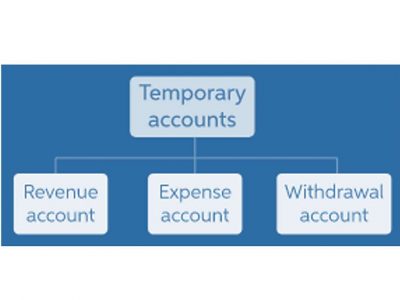
Tax professionals, such as CPAs and tax strategists, play an essential role in this area of your finances. Fiduciaries https://pinusia.co.id/understanding-retainage-and-retainage-bonds-in/ are charged with ensuring that their clients’ needs come first, even if they get commission from the products they sell. In addition to their fiduciary responsibilities, financial advisors holding one of the professional designations may have a code of ethics they must follow. It’s possible for financial advisors to have a number of different specialties, or they can be generalists.
Certifications for CPAs vs. Financial Advisor
- CFPs and CPAs don’t have much overlap in customer base because CPAs specialize in much more complex situations.
- Greg specializes in helping his clients create a proactive plan to minimize the exposure of market conditions while still harnessing the incredible power of global financial markets.
- If you need a tax expert who can organize your income on a tax return, you can get a CPA.
- The overall job of a CPA consists of helping companies, individuals, and organizations make sense of financial data.
- It is simply more tailored to helping individuals with financial planning.
CPAs are the masters of numbers, helping businesses and individuals make sense of their financial universe. They assist in financial planning, budgeting, and forecasting, ensuring their clients’ financial wellbeing. From assisting with tax planning to providing guidance on investment decisions, CPAs are the trusted advisors that individuals and businesses rely on to navigate the ever-changing financial landscape. Planner CS is a dynamic tax planning software from Thomson Reuters, designed to add significant value to the services offered by tax professionals. It is continuously updated throughout the year to reflect new laws and regulations, ensuring that clients are fully prepared for the impact of changing tax laws. Both CPA and CFP® professionals require a bachelor’s degree and a specified amount of college or university-level credits in their respective areas.
CPAs A Basic Know-How
This service is crucial for ensuring transparency, identifying discrepancies, and compliance with accounting standards and regulations. They can negotiate with the IRS on behalf of their clients, discuss payment plans or settlements, and provide counsel on how to avoid future tax disagreements. Both tax advisors and Certified Public Accountants (CPAs) play vital roles in managing financial aspects, but their importance lies in their distinct areas of specialization.
CPAs May Be Able to Save You Money

While both can handle taxes, CPAs provide a range of financial services. Throughout their careers, tax attorneys must continuously update their knowledge of evolving tax laws and regulations through continuing education courses. Some may also pursue additional certifications, such as becoming a Certified Public Accountant (CPA), to enhance their expertise in financial matters. Tax preparation is the annual ritual of getting your tax return ready. It involves gathering all your financial documents and organizing them according to the latest IRS guidelines.

How to Choose the Right Tax Preparer: A Comprehensive Guide for Individuals and Businesses

These state-specific requirements can be found on the AICPA’s website or the National Association of State Boards of Accountancy (NASBA). Some states allow CPAs with extensive experience to waive certain requirements, such as residency rules, to facilitate career mobility. Profit and prosper with the best of Kiplinger’s advice on investing, taxes, retirement, personal finance and much more. All of these are items that most CPAs do not do and that involve a more sophisticated tax plan.
- Tax planning happens year-round and involves proactive strategies to control how much you must pay each year.
- From assisting with tax planning to providing guidance on investment decisions, CPAs are the trusted advisors that individuals and businesses rely on to navigate the ever-changing financial landscape.
- A key difference between CPAs and tax preparers lies in their education and certification.
- The professionals are said to have been compensated with attractive salaries in industries such as investments, insurance, tax, retirement & real estate.
- Tax-loss harvesting to minimize the tax drag on your various investments.
What is a Tax Strategist?
It saves you from piecemealing services among different professionals who may not communicate well with each other, resulting in more cohesive and strategic financial management. They’re equipped to provide high-level strategic advice beyond tax returns, making them an invaluable resource for individuals and businesses aiming for sustainable growth and compliance. It’s better to work with a CPA with the training and experience for planning, strategy, or financial advice. CFP® professionals focus heavily on strategic financial management and maintain a strong interest in budgeting, savings, insurance and estate planning. CFP® professionals closely review your current financial standing and, based on your financial goals, develop an investment and financial plan to help you accumulate wealth.
- Additionally, tax accountants are ideal for tasks like payroll management, organizing financial records, and assisting with routine audits.
- Tax preparers, conversely, aren’t required to complete a college degree in any field.
- Alternatively, you can hire a financial planner who receives a commission on the products that they sell to you, or on specific investments tailored to your situation.
- That tidy package with everything in one place makes it quite easy to share with a CPA or tax preparer.
- There are CPAs vs tax strategists who are awful at their job and can only offer you tax returns full of errors.
- They understand the complexities of corporate tax law and advise on maximizing tax efficiency.
- Prior to forming ASE Group, Al-Nesha successfully managed teams with Ernst & Young and Prudential Financial in audit, assurance, and financial reporting roles.

Once the exam is passed, the accountant applies to their individual state for licensure. CPAs are also usually required to complete 40 hours of continued education annually. CPAs are licensed by the AICPA (American Institution of Certified Public Accountants). Before an accountant can sit for AICPA’s exam, they must complete a bachelor’s degree and 150 credit hours with a focus on accounting, business and general education. There is no centralized body of control and each state has its own licensing requirements and pattern of the exam. A CPA professional is an expert in handling tax law questions or provides tax advice to people.
- For education, candidates must complete 150 semester hours of college coursework, which often results in a master’s degree.
- A CPA has a much broader skill set and can provide financial advisory services beyond tax preparation.
- In the cases of both tax and financial advisors, you’ll want to look for licensed professionals.
- However, a CPA focuses more on tax situations, whereas a financial planner works with clients on savings, investments, and debt.
- Like CPAs, enrolled agents can speak with the IRS on your behalf during tax audits, collections, or appeals.
- After the fact, tax strategists can collaborate with the CPA to ensure the investments align with your overall tax planning objectives and take advantage of available benefits or incentives.
CPAs have a broader scope of knowledge and can provide more comprehensive financial advice beyond just tax preparation. They can assist with audits, financial planning, and even offer guidance on complex tax strategies for high-net-worth individuals and corporations. Choosing between a Certified Financial Planner™ (CFP®) and a certified public accountant (CPA) depends on your financial needs. A CFP specializes in personal financial planning, including investments, retirement, and estate strategies. A CPA, on the other hand, focuses on tax planning, accounting tax planner vs cpa and business financial management. While both professionals offer financial expertise, their roles differ significantly.
What if I need year-round consulting or have complex business structures?
Many of them can also assist with unearned revenue financial planning and wealth management. Financial planning tasks can include debt payoff, saving and investing, retirement planning and estate planning. Many tax strategists are former or current CPAs, tax attorneys, financial advisors, or enrolled agents in the IRS.



Leave a Comment